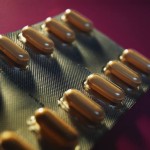Ask Joslin: About Insulin

If I use insulin will my pancreas get lazy? How do I adjust my insulin injections for medical procedures? What are the best injection sites?

If I use insulin will my pancreas get lazy? How do I adjust my insulin injections for medical procedures? What are the best injection sites?

Statin therapy in individuals who had a low risk of cardiovascular disease was not cost effective when the therapy’s potential to increase the risk of diabetes was taken into account, according to an analysis by researchers at the Centers for Disease Control and Prevention.

Fitness fanatics may soon be able to gauge if their hard work is paying off without the need for weighing scales thanks to a new device that can instantly tell if your body is burning fat.

Understanding the proteins that are targeted by the cosmetic drug Botox (onabotulinumtoxinA) could lead to breakthroughs against type 2 diabetes, according to researchers at Heriot-Watt University in Scotland.

Regulators in Europe have concluded that there is little evidence that widely used drugs to treat Type 2 diabetes could cause pancreatic inflammation or pancreatic cancer, a finding that might reassure patients while also removing a potential sales threat for Merck and some other drug companies.

Men who skip breakfast or indulge in late-night cravings might be more at risk for a heart attack and coronary heart disease, according to a new study published in the journal Circulation.

A new pooled analysis shows DPP-4 inhibitors have a greater safety and tolerability profile when compared to other antihyperglycemic agents.

People who eat nuts, and in particular walnuts, more than three times a week have a reduced risk of death from cardiovascular disease and cancer, according to new research from Spain.

What if a once-a-week injection could stave off long-term diabetes complications like nerve, kidney and eye damage? And what if that shot, not too different than giving yourself a dose of insulin, was something you could have done in a routine doctor’s visit at the same time they’re measuring blood pressure, cholesterol, and other in-office […]

The reason some patients are cured of type-2 diabetes after a gastric bypass may have been explained by US researchers.

According to Dr. Roy Taylor of the United Kingdom’s University of Newcastle, we need to change our understanding of what causes Type 2 diabetes. Then we can treat it and reverse it. What is this new understanding?

Clinical trials go well in 2013, its CEO expects to initiate the process of seeking Food and Drug Administration (FDA) approval for the device in 2014. And if that goes well, Worcester, Mass.-based Grove Instruments’ product could become available for use by the 25.8 million U.S. children and adults with diabetes by 2015 or 2016.

Oral insulins have been a dream of both patients and researchers for decades. But the technical aspects of preventing insulin from being digested by the enzymes in the gastrointestinal tract, along with the numerous barriers to absorption from the intestine, have been formidable.

Targeted products include Zostrix Diabetic Foot Pain Relief Cream, DiabeRex, marketed as “the New Diabetes Miracle,” and Glytain, billed as “the all-natural way to support normal blood sugar levels”.

Previous studies examining the risk of disability associated with diabetes have produced varying results, ranging from no association, to a doubling of risk. The new study is the first meta-analysis to pool estimates taken from earlier studies, providing a more reliable estimate of the likely risk of disability associated with diabetes.

Now a collaboration between North Carolina State University, University of North Carolina at Chapel Hill, MIT, and Boston Children’s Hospital has developed and is analyzing a new material that can encapsulate insulin and release it as needed into the blood stream.

Once again, I’d like to thank everyone for their commentary, feedback, and questions regarding the two sweeteners I’ve recently written about: Splenda and Nectresse. Due to popular demand, I’ve decided to extend my series and focus this week on another standby, aspartame.

A British drug company is looking to medical marijuana- or at least a derivative of it-to help treat a variety of different diseases, including type 2 diabetes.

The resistance to insulin seen in type 2 diabetics is caused partly by the lack of a protein that has not previously been associated with diabetes. This breakthrough could potentially help to prevent diabetes.

An international committee of leading nutrition scientists from 10 countries on three continents has released a consensus statement that concludes that carbohydrate quality (measured by the glycemic index or GI) matters and that the carbohydrates present in different foods affect post-meal blood sugar differently, with important health implications.